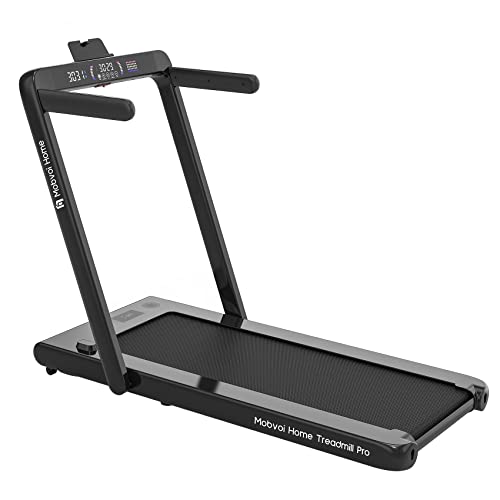It Is Also A Guide To Walking Machine In 2024
The Walking Machine: A Comprehensive Guide to Your Fitness Companion
In today's busy world, where time is a high-end, maintaining a consistent exercise regimen can be a challenge. For numerous, a walking machine— commonly referred to as a treadmill— serves as an ideal physical fitness buddy. This short article supplies an in-depth appearance at walking machines, including their benefits, types, maintenance ideas, and regularly asked questions.
Why Choose a Walking Machine?
Walking machines provide a practical and effective way to include cardiovascular exercise into daily life. Here are several essential benefits:
- Convenience: Walking machines allow individuals to exercise anytime, no matter weather conditions or time restraints. They are perfect for hectic schedules.
- Flexibility: Users can stroll, jog, or perform at their own speed and intensity.
- Security: Walking machines present a lower risk of injury compared to outdoor walking or running, particularly for beginners or those recuperating from injuries.
- Tracking Progress: Many treadmills featured integrated monitors that track metrics like speed, range, and calories burned.
Types of Walking Machines
When considering a walking machine, it's important to choose the best type based on private fitness goals and space restraints. Below are the main types of walking machines:
Type
Description
Handbook Treadmills
These machines do not have a motor, and users need to stroll or run to rotate the belt.
Electric Treadmills
Powered by an electric motor, allowing users to set the speed and incline easily.
Folding Treadmills
Created for easy storage, these treadmills can be folded up when not in use.
Desk Treadmills
Ideal for a double work and exercise environment, these compact machines allow walking while working.
Incline Trainers
These allow users to replicate uphill walking, enhancing exercise strength and calorie burn.
Picking the Right Walking Machine
Choosing the best walking machine can substantially impact inspiration and efficiency. Here are some factors to consider:
Key Features to Look For
- Motor Power: A powerful motor makes sure a smooth and consistent exercise. For occasional walkers, a 1.5 HP motor is typically enough; for heavier use, try to find 3.0 HP and above.
- Belt Size: A larger and longer belt provides more area for a comfy stride. Requirement sizes range from 16 inches large and 50 inches long.
- Slope Options: Adjustable incline settings can imitate walking or running uphill, increasing the intensity of the exercise.
- Shock Absorption: Good shock absorption minimizes the danger of joint injuries and boosts convenience.
- Console Features: Look for integrated exercises, heart rate monitors, and connectivity functions like Bluetooth for a more interesting experience.
Spending plan Considerations
Walking machines can be found in a large range of prices, depending on functions and building quality. Here's a rough budget breakdown:
Price Range
Features
Under ₤ 300
Basic handbook or little electric treadmills with limited functions.
₤ 300 – ₤ 700
More advanced electric treadmills with slope, medium power motors, and better warranties.
₤ 700 – ₤ 1500
Premium electric treadmills with larger built-in screens, substantial functions, and service warranties.
₤ 1500 and above
High-end designs providing sophisticated technology, features, and resilient construction for major physical fitness enthusiasts.
Upkeep Tips for Your Walking Machine
To ensure longevity and optimum efficiency of a walking machine, think about the following maintenance suggestions:
- Regular Cleaning: Dust and sweat can collect on the machine and the belt. Wipe down the surfaces and clean the belt frequently.
- Lubrication: Depending on the model, oiling the running belt occasionally can prevent wear and tear. Inspect the producer standards for recommended lubrication schedules.
- Examination: Periodically inspect the machine for loose screws or used parts. Tighten and replace as required.
- Calibration: Occasionally, examine the calibration of your machine's metrics to ensure they offer accurate information.
- Appropriate Use: Follow the producer's recommendations for weight limitations and functional guidelines.
Frequently Asked Questions About Walking Machines
1. Are walking machines a good exercise?
Yes, walking machines offer an exceptional cardiovascular workout, can assist with weight loss, and improve total health.
2. How typically should I use a walking machine?
Go for at least 150 minutes of moderate-intensity aerobic activity each week, which can quickly be accomplished with routine sessions on a walking machine.
3. Can I slim down on a walking machine?
Yes, incorporating a walking machine routine into a healthy diet plan can promote weight-loss, especially if integrated with periods and incline training.
4. Is it safe for elders to use a walking machine?
Yes, walking machines can be safe for senior citizens with low-impact settings and safety features like handrails. However, people must speak with their doctor before beginning any workout program.
5. What's the distinction in between a treadmill and a walking machine?
The term “walking machine” normally refers to a treadmill planned for walking, while “treadmill” can describe machines used for numerous strengths, consisting of running.
With their versatility and convenience, walking machines can significantly enhance one's physical fitness journey. By carefully picking the right type, making sure correct upkeep, and incorporating different exercise methods, users can optimize their walking machine's advantages. look what i found to any exercise routine, consistency is crucial to attaining enduring physical fitness results.
